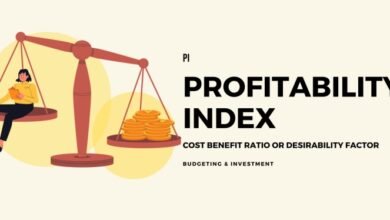Which language is best to learn for career: Choosing the Right Language for You

The world is becoming increasingly interconnected, and with that comes a growing demand for multilingual professionals. Whether you’re looking to land your dream job or expand your business ventures, learning a new language can be a powerful asset. But with so many languages out there, which one should you choose Which language is best to learn for career?
This article explores some of the factors to consider when selecting a language for career advancement, along with highlighting some of the most in-demand languages in today’s job market.
Finding the Right Fit: Considerations for Choosing a Career Language
Before diving into specific languages, let’s delve into some key considerations to guide your decision:
- Your Career Path: Different industries favor different languages. For example, Mandarin Chinese is a valuable asset in international business, while Arabic can open doors in the Middle East. Identify your target career path and research the languages commonly used in that field.
- Existing Language Skills: Building on your existing language knowledge can be a time-saving strategy. For instance, if you speak Spanish, learning Portuguese or Italian might be a smoother transition compared to starting with Mandarin Chinese Which language is best to learn for career.
- Location, Location, Location: Consider the geographical focus of your career aspirations. If you aim to work in Europe, French or German could be beneficial. Similarly, targeting Asian markets might make Mandarin or Japanese a wise choice.
- Personal Interest: Learning a language requires dedication. Choosing a language that genuinely interests you will make the process more enjoyable and sustainable in the long run.
Top Languages for Career Advancement
Now, let’s explore some of the most in-demand languages in today’s job market, keeping the above considerations in mind: Which language is best to learn for career
- Mandarin Chinese: With over 1.3 billion native speakers, Mandarin is the world’s most spoken language and a powerhouse in the global economy. China’s booming trade sector creates a constant need for professionals fluent in both Mandarin and English. While Mandarin is known for its complexity, the long-term career benefits can be significant.
- Spanish: The second most spoken language globally, Spanish offers a gateway to a vast and diverse market, particularly in Latin America and the United States. Fluency in Spanish can be a valuable asset in fields like healthcare, education, and customer service.
- Arabic: The Middle East and North Africa hold immense economic potential, and Arabic is the key to unlocking this market. Learning Arabic can open doors in sectors like oil and gas, finance, and tourism. While Arabic has various dialects, focusing on Modern Standard Arabic allows for communication across the region.
German: As the economic powerhouse of Europe
- Germany offers a wealth of career opportunities. German is the official language of Germany and Austria and is widely spoken in other European nations. Fluency in German is a plus in the engineering, automotive, and manufacturing industries Which language is best to learn for career.
- French: French is the official language in over 30 countries and a significant language of business in Europe and Africa. French can be a valuable asset in fields like diplomacy, luxury goods, and international relations.
- Japanese: Japan is a leader in technology and innovation. Learning Japanese can open doors in fields like robotics, engineering, and animation. Japanese, however, is known for its complex writing system and grammar.
- Korean: The Korean wave, encompassing K-pop and Korean dramas, has surged in popularity, making Korean a language with growing global demand. Fluency in Korean can be beneficial in fields like entertainment, education, and technology.
Beyond the Big Names: Languages with Niche Appeal
While the languages listed above offer broad career potential, consider these “niche” languages for specific career goals:
- Portuguese: Portuguese is spoken in Brazil, Portugal, and several African nations. With Brazil’s growing economy, Portuguese fluency can be advantageous in trade, business development, and research.
- Russian: Russia is a major player in the global energy market. Learning Russian can open doors in sectors like oil and gas, diplomacy, and aerospace.
- Hindi: India is a rapidly developing economy with a vast population. Hindi, the most widely spoken language in India, can be a valuable asset in fields like IT, outsourcing, and pharmaceuticals.
Conclusion: The Language Journey Begins Here
The choice of a career language is a personal one, tailored to your individual goals and interests. Carefully consider your existing skills, target industries, and geographical aspirations when making your decision. Embrace the process, celebrate your progress, and enjoy the doors a new language can open in your career Which language is best to learn for career.


